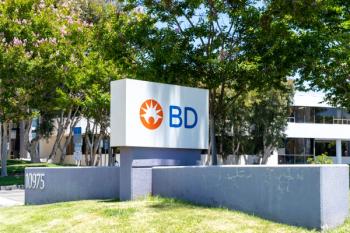
Recent Advances in Two-Dimensional Liquid Chromatography Separations
This Tuesday morning symposium, organized by Dwight Stoll of Gustavus Adolphus College, brings together experts in liquid chromatography (LC) to discuss recent advances in two dimensional (2D)-LC separations of small and large molecules. Different perspectives from instrument manufacturers, users in the pharmaceutical industry, and academic laboratories will be presented as well as a discussion on some samples related to pharmaceutical and biopharmaceutical applications.
Session 760
Room 311AB
8:30–11:45 a.m.
This Tuesday morning symposium, organized by Dwight Stoll of Gustavus Adolphus College, brings together experts in liquid chromatography (LC) to discuss recent advances in two dimensional (2D)-LC separations of small and large molecules. Different perspectives from instrument manufacturers, users in the pharmaceutical industry, and academic laboratories will be presented as well as a discussion on some samples related to pharmaceutical and biopharmaceutical applications.
The first talk will be given by Stoll and is titled “Development of Active Solvent Modulation as a Versatile Approach to Improve the Compatibility of Different Separation Modes Used in 2D-LC.” In this presentation, Stoll will describe recent insights on the utility active solvent modulation (ASM) obtained from both simulations and experiments. In addition, he will present results of representative 2D-LC separations of peptides and proteins that illustrate the utility of the ASM approach.
The next talk will be given by Brooke M. Koshel of Waters Corporation titled “Two-Dimensional Liquid Chromatography Coupled to Mass Spectrometry for Impurity Analysis of Oligonucleotides.” In this presentation, modified oligonucleotides will be analyzed using 2D-LC coupled to mass spectrometry (MS) to address the challenges faced when selecting a mobile phase to optimize both chromatography and mass spectrometry. By incorporating a second-dimension separation and at-column-dilution, sensitivity is improved to detect impurities that are not readily detectable through one-dimensional chromatography alone.
The third talk is titled “Enantioselective Analysis Using Multidimensional Liquid Chromatography,” and will be presented by Jeannie Horak of the University of Tuebingen. In this presentation, the different modalities of enantioselective multidimensional LC, such as offline LCxLC, online multiple heart cutting, high resolution sampling (selective comprehensive), and fully comprehensive LCxLC, will be discussed. The advantages, challenges, problems and how they can be overcome, and disadvantages of each modality will be outlined by Horak using real applications from pharmaceutical analysis to biotechnology.
After a brief recess, Stephan Buckenmaier of Agilent Technologies will present a talk titled “Improvements in 2D-LC Applications Enabled by New Instrument Technology.” This presentation will focus on a technique referred to as multiple heart-cutting 2D-LC, which breaks the link between the 1D and 2D separation timescales allowing for operation of both dimensions nearly independently.
The final talk in this session is titled “Characterization of Biocompatible Polymers for Drug Conjugation by 2DLC-QTOF,” and will be presented by Kelly Zhang of Genentech. Zhang will discuss the use of 2DLC-QTOF with charge reduction mass spectrometry to deconvolute the polymer distributions to lower charge states to identify and characterize the heterogenous polymer profile and its maleimide related species.
Newsletter
Join the global community of analytical scientists who trust LCGC for insights on the latest techniques, trends, and expert solutions in chromatography.




